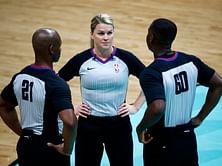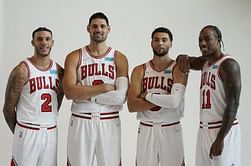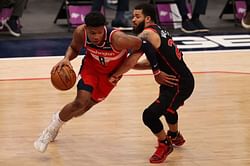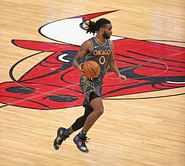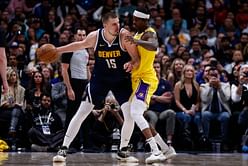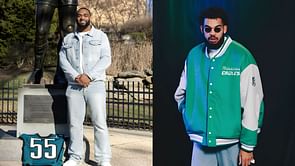Playing a crucial role in every game, the NBA referees do more than enforce the rule book. They maintain the integrity of the world's premier basketball league consisting of 30 teams, 120 pre-season games, 1260 regular season games, and 4 rounds of playoffs. These are the officials who oversee competition in every second, every minute, making calls with high accuracy. Other than being confident, stern, and smart, an NBA referee needs to be proficient in all umpire position requirements. They are required to effectively glue the crew through consistency, teamwork, and communication. They are also capable of handling some plays in the secondary areas of coverage. And most importantly they have the ability and awareness to recognize, and appropriately manage shifts in game conditions (intensity, emotions, decorum, style of play etc.). Along with the athletes, a referee’s physical fitness is also vital. To ensure they are always in the right place to make the correct call, they need to run up and down the court all game without a substitution or water break.
How much do NBA referees make?
Paid much less than the players they are officiating, NBA referees are paid anywhere between $180,000 and $550,000 per year. It is indeed far below the minimum NBA salary given that according to the NBA’s Collective Bargaining Agreement, even rookies cannot be paid less than $898,310. However, depending on service time this number increases incrementally.
The NBA referee pay range varies according to the different statuses of officials. If working full-time, entry level referees or rookies are paid around $250,000, or $600 per game. While at $180,000 per year or $425 per game, the WNBA referees receive the lowest pay.
The senior level is the top level of NBA referees. Before they can reach that level, they are required to have three to five years of experience. Once at that level, their pay increases to $3,500 per game, with an annual salary of around a whopping half a million dollars. Only after that they become eligible to officiate postseason games where they can earn as high as $10,000/game in the first two rounds which can further increase to over $30,000/game for the referees officiating in the finals and semifinals.
NBA referees also receive numerous benefits like travel expenses, insurance and retirement plans. The National Basketball Referees’ Association (NBRA) is their official representative committee.
| Category | Per Match Fees | Play-Off Match Fees | Yearly Earnings |
| Professional NBA Referees | 7K US Dollars | 9K – 29K US Dollars | 550K US Dollars |
| Entry Level NBA Referees | 2K US Dollars | Not Applicable | 150K US Dollars |
| WNBA Referees | 450 – 500 US Dollars | Not Available | 16K US Dollars |
An average NBA referee ($550,000) nearly makes three times more than the salary of average NFL officials ($188,322). Here’s a comparison -
| Sport | Average Salary |
| NBA Official | $375,000 |
| NFL Official | $188,322 |
| NHL Official | $212,500 |
| MLB Official | $235,000 |
How to become an NBA referee?
The requirements for NBA referee candidates has been outlined in the NBA officials’ website. Candidate profiles, including referee clips and employment history are reviewed by an NBA scouting team. However, one can also work their way up through the different basketball leagues to become an NBA referee. A combination of basketball expertise and interpersonal skills is what is needed for NBA referees to succeed in their roles.
Here’s a list of some skills that an NBA ref can benefit from:
Endurance:
Referees need to run, backpedal ,and lean over throughout basketball games, to stay with the ball and accordingly make quick calls. They also have to stand for long periods throughout games. Thus, optimal physical stamina that helps them to run, walk or stand for the duration of a game is vital.
Patience:
At times a referee is required to handle an upset player or coach in response to a call they made. A great deal of patience is required for this. There will be plenty of heated moments; their ability to remain calm and professional will be key to their performance.
Interpersonal communication:
Excellent interpersonal communication allows referees to adjust their communication while speaking to a player, coach or another official. Since, they have to travel to officiate different games, they will have to work with someone they haven't previously worked with. This skill becomes important in those instances.
Basketball rules expertise:
An expert understanding of basketball rules, offenses and referee hand signals, goes without saying, is compulsory to learn.
Ethical mindset:
To make unbiased and fair perspective calls in favour of both teams to ensure fair outcome, an NBA referee needs to have an ethical mindset.
Ability to focus:
During basketball games, the ambience is very fast paced as players continuously move up and down the court, coaches keep yelling along with the fans roaring in full support. In such an environment with these many distractions, NBA referees need to have a keen ability to focus, so that they don’t miss to make important calls that could affect the game’s outcome.
Attention to detail:
Also a keen attention to detail which enables them to catch minor details for fouls and other offenses is a key skill to acquire.
The following steps outline how one can pursue an NBA referee position:
1. Earn a high school diploma
The minimum education requirement for referees is a high school diploma or GED. To gain experience aspirants can join their school's basketball team as either a student manager, player or referee assistant if possible.
2. Work as a referee for youth basketball
Youth basketball leagues can be a great place to start as a referee. Volunteering as a referee for the local area's parks and recreation department is a good way to start.
3. Register to work as a high school athletics coach
The next level for basketball referees is to officiate at the high school level by contacting the state's public school athletic association. One needs to pass a background check and complete an interview to qualify to become a high school referee along with a basketball rule test at times. To show refereeing skills, the candidate may also be asked to conduct a mock game demonstration.
4. Register to officiate through the National College Athletic Association (NCAA)
After high school, candidates need to register with The National College Athletic Association (NCAA) to officiate college basketball. An in-person interview, knowledge test and background check is needed in order to qualify.
6. Attend referee tryouts for the NBA G League
The NBA G League, the development league for the NBA, holds referee tryouts for qualified individuals and selects candidates based on their expertise.
7. Ask for a recommendation to work as an NBA referee
By recommendations from their superiors, some NBA G League referees have the opportunity to be promoted to the NBA.
What is the Difference Between NBA Referees and Officials?
In basketball, an official is also usually called a referee. Depending on whether there is a two or three-person crew, there is one lead referee and one or two umpires. The crew chief is the lead official in the NBA with one referee and one umpire.
FAQs
Who is the highest paid NBA referee?
James Capers, Sean Corbin, Tony Brothers, Rodney Mott, Scott Foster, Ken Mauer, Pat Fraher, Tom Washington and Marc Davis are currently the highest paid NBA referees.
Is an NBA referee a full time job?
Officiating is a full-time job and NBA officials are required to be scholars of the rulebook, process decisions quickly, and maintain tip-top fitness. Each team in the league plays 82 regular-season games over that period. Road trips can be 24 to 25 days per month sometimes.
How many female refs are in the NBA?
In the 2020-21 season, there have been a record 7 female NBA referees who officiated at least one game. They are - Natalie Sago, Lauren Holtkamp-Sterling, Ashley Moyer-Gleich, Simone Jelks, Dannica Mosher, Jenna Schroeder and Danielle Scott.
